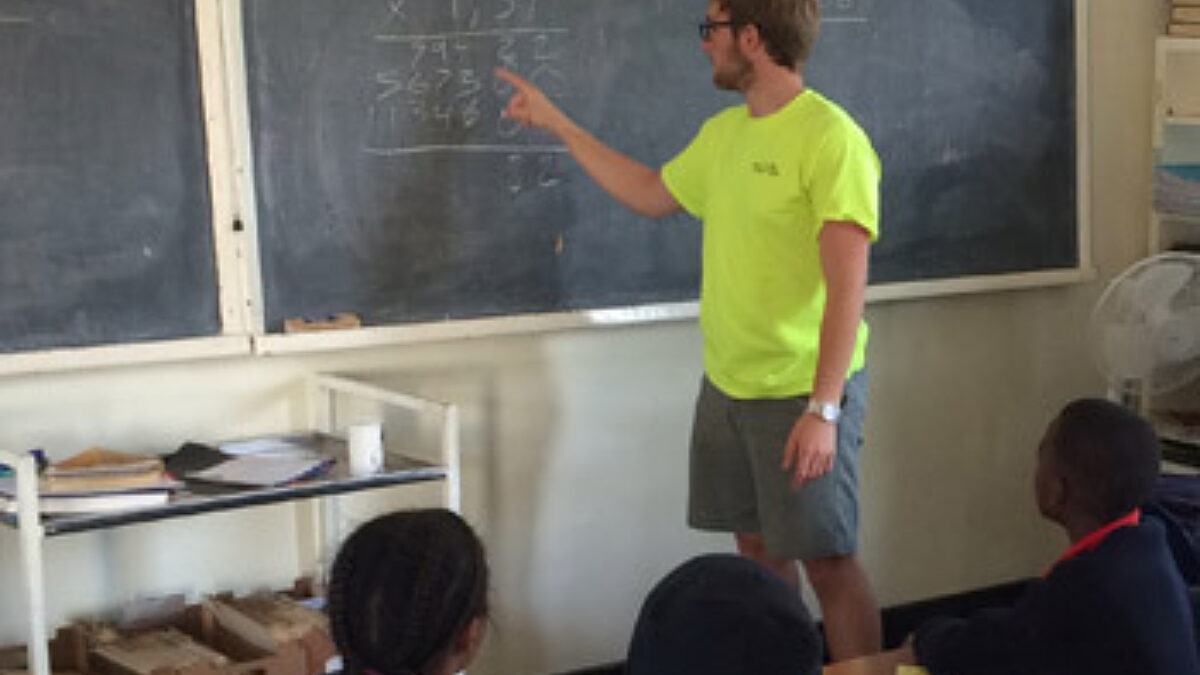
MSN missions to primary school in South Africa
By Bailey Sanford
At several Sunday evening services this semester at the Methodist Student Network at the University of South Carolina, the offering baskets have circulated among the mostly student congregation who is not known for carrying a lot of cash. Pictures of children from Thembelihle School in Howick, South Africa, make the connection between the giver and the recipient. Scholarship money for a child is being offered—enough to attend school for a year.
Howick is a town of approximately 20,000 residents situated 300 miles southwest of Johannesburg. On paper, Howick appears to be a model of diversity in post-Apartheid South Africa with a population that is 50 percent black, 35 percent white and 15 percent Indian. In May, a group of 12 from the Methodist Student Network at USC traveled to Howick to serve Thembelihle Primary School, a local mission school sponsored by Howick Methodist and Brentwood United Methodist Church in Brentwood, Tenn.
Our experiences exposed a town divided: a town divided by race and class, by borders and barriers. The majority of the white population lives in gated communities near the heart of town surrounded by tall security fences topped with razor wire and broken glass. Their homes are well built, spacious, tastefully decorated—not unlike what you might expect to see in the U.S. Their children attend one of the prestigious private academies in town before enrolling in Howick High School. These neighborhoods are havens of affluence, achievement and a high quality of life.
A fifteen-minute walk to the other side of town brings us to the informal settlement known as Shiyabazali. Shiyabazali is home to several thousand of the black residents of Howick. Their one-room dwellings are built using refuse from a local tire plant, and they live without electricity or running water. Robbery and sexual assault are far too common in the settlement. There are no public schools in the settlement, and because transportation can be both dangerous and expensive, many of them never make it to school until they are old enough to walk by themselves to the school on the other side of town. As a result, many of these students enter high school being unable to read or write in English and are quick to drop out and find themselves right back in the informal settlement. This inequality of opportunity drives the cycle of poverty in Howick.
Thembelihle is situated in the middle of town and serves students from the informal settlement. Each morning, close to 200 students from the settlement and the nearby black township come to the school and are met by a multi-racial, loving staff. At school they receive not only a comprehensive primary education, but also nutrition supplements, exposure to extracurricular activities and an education in basic business principles. This education equips them and empowers them to be competitive when they enter Howick High School and opens up the opportunity for them to pursue higher education and formal business ventures, fields that have largely been closed off to blacks in South Africa for generations.
Upon arriving at the school, the MSN students led a hundred energetic pupils in several morning assemblies. Favorite camp songs with strange sound effects and actions delighted the children. The rest of the week you could hear the pupils singing the new songs.
The MSN team found itself involved in numerous aspects of the school. In the classroom, students taught math and several others tutored. PowerPoint presentations on the U.S. and Brazil were given, with pupils asking many questions. All the books in the library were reorganized according to a new classification system. Teachers were assisted with many tasks.
Outside, there was painting and landscaping to do. But much time was spent building relationships with the children and encouraging them to overcome the gigantic obstacles they faced in their lives.
The Republic of South Africa still has a long road ahead of it to becoming a “rainbow republic,” but schools like Thembelihle are paving the way. As South Africa continues to nurse the open wounds left by Apartheid, Thembelihle is fulfilling Christ’s charge to be “ministers of reconciliation” (2 Corinthians 5:18).